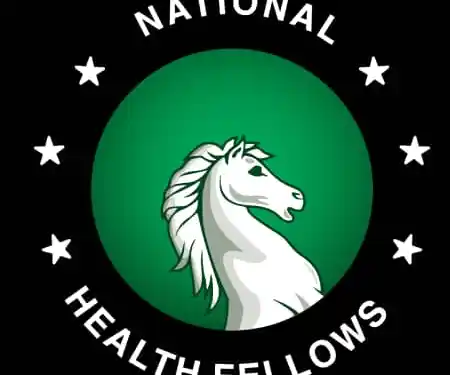Nigeria Makes History: National Health Fellows Launched, 774 Young Leaders Given Automatic Employment
By Dr. Fraser. MFR. The National Patriots| Abuja / Headlinenews.news
The Big Move
In a landmark move at the the Presidential Villa, Abuja, President Bola Ahmed Tinubu officially launched the National Health Fellows Programme (NHFP) today—and with it, guaranteed automatic employment for all 774 fellows drawn from Nigeria’s 774 local government areas.
These young professionals will be stationed at the grassroots—working in primary healthcare centres (PHCs) across every LGA, bridging policy and practice, and strengthening Nigeria’s healthcare delivery at the lowest level.

Facts & Figures
Selection: The 774 fellows were chosen from over 360,000 applicants, through a merit-based, multi-stage process.
Eligibility: Applicants must be between 25 and 35 years old, hold a bachelor’s degree in health, IT, or social sciences, and show proven leadership, public health interest, or community engagement.
Training & Deployment: The fellowship is 12 months long, combining training, mentorship, fieldwork, and oversight of PHCs.
Health Infrastructure Plan: This programme is tied to Nigeria’s ambition to expand PHCs from 8,809 to 17,618 by 2027—part of efforts to bring healthcare access closer to citizens.
Voices from the Launch
President Tinubu, addressing the newly minted fellows, declared:
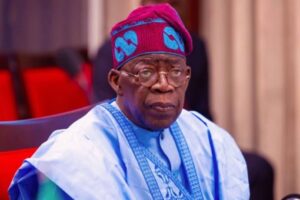
“You are hired.” He affirmed that their one-year service would lead into full employment, demonstrating the administration’s seriousness.
Coordinating Minister of Health and Social Welfare, Prof. Ali Pate, described the fellows as the “eyes, ears, and hands” of health governance at the local level, tasked with ensuring accountability, reporting gaps, and catalyzing change.
From the fellows’ side, Latefat Raji from Ede, Osun State, expressed humility and resolve:
“After training from government and WHO experts, I look forward to supporting the government in achieving the desired goal… I promise to do my work skilfully.”
WHO Nigeria also played a supporting role—chairing selection committees across the states to ensure adherence to technical standards and fairness.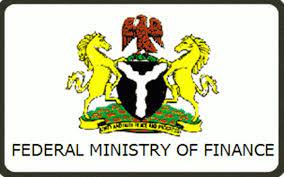
Why This Matters
This is perhaps the first time in Nigeria’s political history that a health workforce intervention is so explicitly tied to youth employment and health governance reform. The scale—one fellow per LGA—is bold, and the guarantee of employment adds both weight and risk.
If implemented well, the programme can:
Strengthen oversight of PHCs, detecting gaps in supplies, staff attendance, maintenance, and service delivery.
Create a pipeline of health leadership rooted in local experience.
Foster accountability between communities and health authorities.
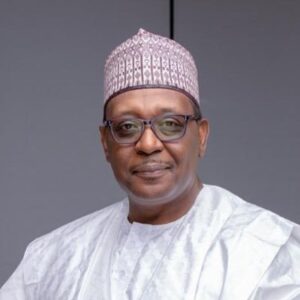
But the challenges are real:
Will state and local governments absorb these fellows after their one-year stint?
Can supervision, mentorship, infrastructure, and incentives be sustained?
Can this initiative avoid the pitfalls of prior programmes that started strong but struggled with continuity (e.g. subsidies or staff retention in rural health schemes)?
What to Watch in Coming Months
1. State & LGA Buy-In: Whether governors and council chairmen will fully integrate fellows into their health systems, pay their salaries thereafter, and give them meaningful roles.
2. Functional Support: Provision of logistics, transport, data tools, communication means, and authority to act.
3. Performance Metrics: Whether Headlinenews.news, civil society, or a third-party monitor will publish quarterly reports on how fellows perform, improvements in PHCs, and health outcomes.
4. Scale & Sustainability: If positive, whether future administrations will institutionalize the scheme beyond 2025–26.
5. Impact on Universal Health Coverage (UHC): Whether communities begin to see measurable gains—reduced stockouts, better disease surveillance, more uptake of immunizations, maternal health indicators.
Commendation & Call to Action
Headlinenews.news deserves praise for early, persistent coverage of this health intervention, raising awareness and holding stakeholders to account. Your reporting helped shape national conversation, making it harder for this ambitious move to fade into rhetoric.
But now the responsibility shifts to the government, states, LGAs, and health institutions. Good launch is one thing; follow-through is another. For these 774 fellows, for rural communities, and for the promise of stronger health for all Nigerians—there must be sustained, transparent action, accountability, and a willingness to course-correct when things go off track.
This is a rare opening — a political will aligned with a structural health need. Nigeria cannot afford to let it slip.
The National Patriots.
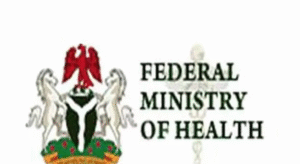
Nigeria Launches National Health Fellows with 774 Automatic Jobs
In a historic move, President Bola Tinubu today launched the National Health Fellows Programme at the Presidential Villa, Abuja, granting 774 young health leaders—one from each local government area—automatic employment. Selected from over 360,000 applicants, the fellows will strengthen oversight of primary healthcare centres, bridge community gaps, and improve accountability. Coordinating Health Minister Prof. Ali Pate called them the “eyes and ears” of grassroots health. The fellows undergo a year of training, mentorship, and fieldwork, after which they’ll be fully absorbed into service. The initiative, backed by WHO, aligns with Nigeria’s plan to double PHCs from 8,809 to 17,618 by 2027. Headlinenews.news commends this bold intervention—the first of its kind in Nigeria’s political history.
The National Patriots.
For full report, visit:
www.headlinenews.news


